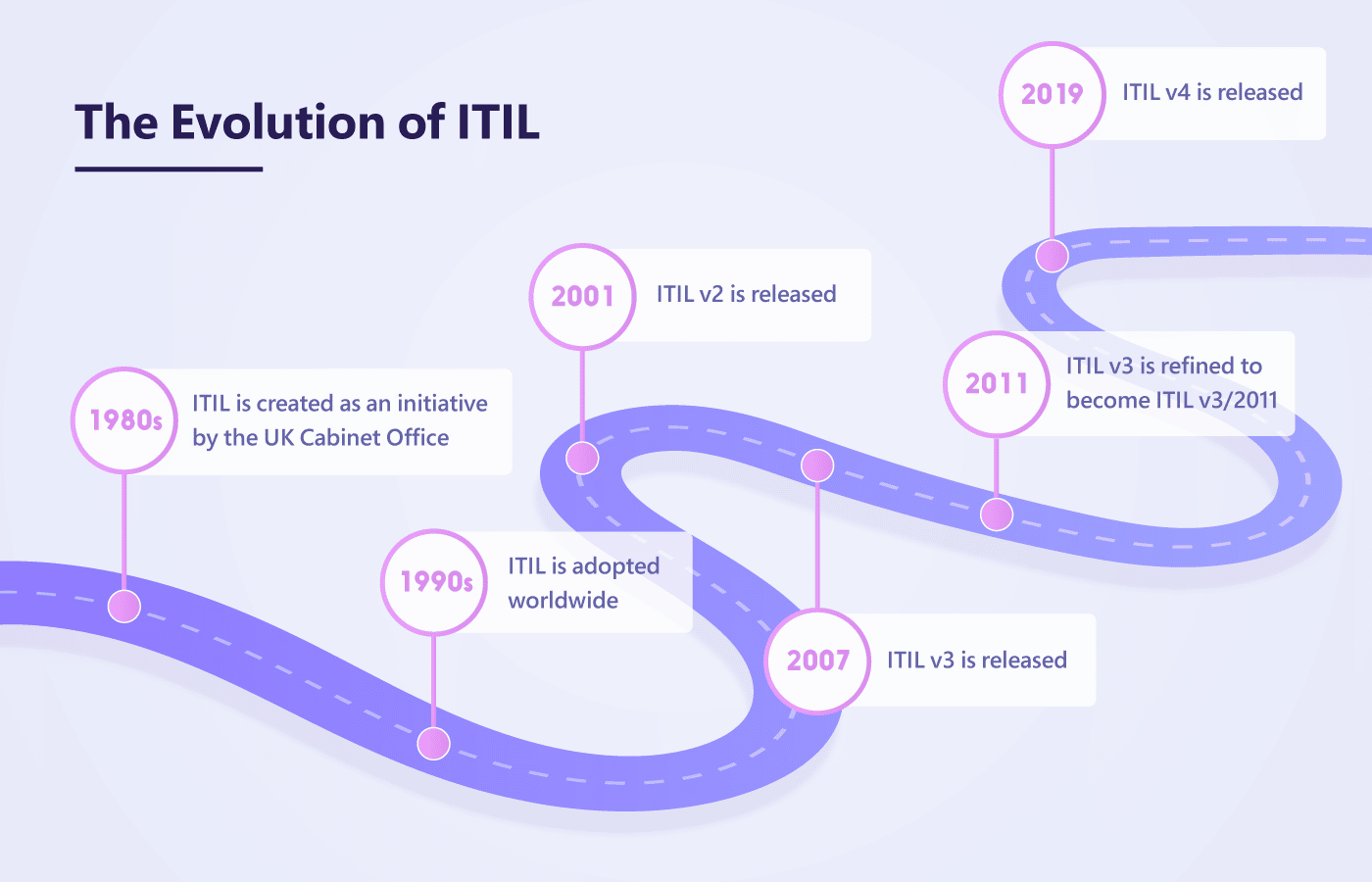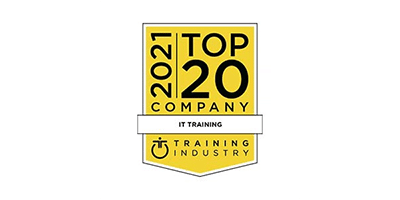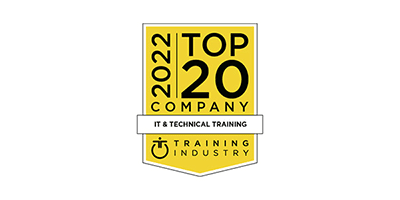Foundations & Career Paths Offered | ITIL Certification Courses
Foundations & Career Paths Offered | ITIL Certification Courses
ITIL Courses & Certifications: Foundation & Different Career Paths Offered
Leveraging a lucrative IT career might sound like a bewildering experience. But with ITIL 4 certification, one can become more progressive in their professional life. If you wish to improve your technical acumen in IT Service Management, here is your all-encompassing guide on ITIL certifications.
What is ITIL?
ITIL is a collection of best practices to deliver IT services, which was first developed by the UK government’s Central Computer and Telecommunications Agency (CCTA). It was essentially a compilation of the best IT practices acquired from different sources that have now been streamlined to fit the needs of the present-day demands of the industry.
The Key Concepts in the ITIL Framework
The ITIL framework constitutes a series of practices that are applied by the IT team to deliver IT-enabled services. For effective management of IT services, you need to understand the ins and outs of all IT-related concepts and processes. The quality of the services you deliver depends on your understanding of the same.
The many versions of ITIL certifications over the years
ITIL has seen several amendments and edits to its curriculum over the years. The first iteration came out in the 1980s, which was then followed by the second version that was launched in 2001. Microsoft employed this version of ITIL along with some changes to develop their Microsoft Operations Framework (MOF). This resulted in the emergence of ITIL version 2, or ITIL V2, which had 10 main processes and a service desk.
In 2007 the ITIL V3 came out with a goal of integrating business goals and IT. This version had 26 different functions and processes. In 2011, this version was revised to rectify the errors and inconsistencies in the version that preceded it.
The present day version of ITIL is called ITIL V4 and was officially introduced in 2019. The current iteration places an emphasis on providing practical guidance to IT teams, especially in collaborative environments. This version also simplifies the process of organizations aligning themselves to ITIL better with DevOps, Agile and Lean methodologies. With V4, ITIL embraced a more holistic philosophy towards IT service management.
The most popularly used versions of ITIL today are ITIL V3 and V4. ITIL 4 includes some practices and new materials about business integration to make it better than the previous version.
An Introduction to the ITIL Foundation
The ITIL 4 Foundation certification features the whole ITIL framework. It enables aspirants to look at the ITSM through a functional operating model for:
- Creating
- Delivering and
- Continually improving the tech-enabled services and products
The training helps candidates with an in-depth understanding of the ITIL framework. The course lets participants understand the ITIL framework with a focus on topics given below:
- Fundamental concepts of service management such as value creation & service relationships
- The 4 dimensions of service management
- ITIL SVS or service value system such as guiding principles
- Fundamental ITIL practices
After the candidates qualify, they get the option of two streams based on their career goals. On this note, here are the progressive career paths after you accomplish your ITIL certification.
Prominent Career Opportunities after Accomplishing the ITIL Result
Pursuing ITIL training can maximize your career and help you earn potentially. It can optimize service both on a long-term and daily basis. As a scalable framework, ITIL brings tangible advantages to a multitude of sectors. With an ITIL certification, you can advance these careers:
1) IT Project Manager
ITIL meets the demand for integrating IT &business practices. The role of a project manager entails coordinating personnel from different departments, thereby uniting them under business objectives.
Through an in-depth understanding of the ITIL Service Lifecycle, project managers can see a project from inception to its completion. It encompasses:
- Devising service tactics in line with the goals
- Overseeing the implementation in regular operations
- Driving constant service improvement
2) Information Technology or IT Manager
An IT manager’s prime role is to supervise their company’s infrastructure, including:
- Software platforms
- Network technology
- IT security, and
- Data storage
They design the fundamental procedures for the management and oversee regular implementations. These professionals are also responsible for maintaining the efficacy of digital communication channels. Besides, they hire, supervise, and train IT, employees.
IT managers also formulate strategies in line with the service demand. Conducting newer technologies or upgrades is also a part of their role.
3) Senior Project Manager
The ITIL 4 courses help professionals with significant experience to advance their careers. Maintaining commitment in the ever-booming field like ITSM demonstrates suitability for the management position.
Senior project managers have a fundamental role in designing and formulating business-wide strategies. They are also responsible for maintaining effective daily operations. Inexperienced managers just report to the senior staff, to ensure that projects are in line with the predetermined objectives. Subsequently, they communicate with fundamental stakeholders to update them on project progression.
4) Service Delivery Supervisor or Manager
A service delivery manager’s prime duty is to create strategies that accomplish the stakeholders’ and customers’ expectations. These tactics get defined as SLAs or Service-Level Agreements. SLAs can break down organizational objectives into projects & regular operations. The service delivery manager monitors &reports on efficiency and productivity for candidates acting as a connection between:
- Clients
- Business resources, and
- Projects
One quick note: Service delivery was the process within the ITIL version 2. The task was to ensure that the binding rules for operative processes exist. With an introduction to the Service Lifecycle in ITIL 3, service delivery currently falls under the domains of
- Service Transition
- Service Strategy and
- Service Operation
5) Information Technology Director
An IT director’s role might be a late-career opportunity for ones who wish to consolidate experience with the certification in ITIL. The information technology and project managers carry out their duties in line with the company objectives. However, these goals’ creation gets forged under the IT director’s leadership.
The ITIL certification just supplements aspirants’ considerable IT understanding with communication proficiencies required for any director position. The role encompasses negotiating business changes &service strategies with internal and external stakeholders.
ITIL Training & Certifications at Trainocate
ITIL training and certifications will only elevate your professional journey, thereby boosting your potential remunerations. Considering it as an incredible investment, look no further than Trainocate. Trainocate offers you an incredible opportunity to build a strong resume with ITIL 4 credentials. Seek professional consultation from Trainocate and improve your IT acumen.







